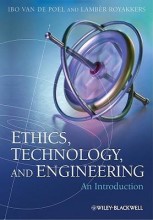Normative Ethics
21 important questions on Normative Ethics
What is the difference between ethics and morality?
Morality: emphasis the widely-shared communal or societal norms about right and wrong. More intersubjective community assessment of what is good, right or just for all.
What is Prescriptive or Normative ethics?
What is Descriptive judgement?
- Higher grades + faster learning
- Never study anything twice
- 100% sure, 100% understanding
What is Normative judgement?
What are the point of departure for the Primary Normative theories?
- Norms
- Values
- Virtues
What is a normative judgment?
What are moral values? Give some examples
- health
- justice
- happiness
- charity
Which distinction can be made for Values?
- Intrinsic value
- Instrumental value
What is an intrinsic value?
Describe normative judgments, and distinguish them from descriptive judgments
Descriptive judgment. Describes what is actually the case (the present), what was the case (the past), or what will be the case (the future). Descriptive judgments are true or false.
Describe norms, values and virtues
Intrinsic value: objective in and of itself
Instrumental value: means to realize and intrinsic value
Has privacy instrumental or intrinsic value?
Intrinsic: we regard privacy as an essential aspect of autonomy. Autonomy is fundamental to what it means to be human - privacy is a necessary condition for an intrinsic value: autonomy
What are two extreme theories for moral judgement?
- Normative relativism
- Absolutism
What is Normative relativism?
What are the three primary ethical theories?
- Consequentialism
- Deontology
- Virtue ethics
What is Act Utilitarianism?
What is Rule Utilitarianism?
What is Care Ethics?
Moral balance sheet
Mill's freedom principle
Social ethics of engineering
The question on the page originate from the summary of the following study material:
- A unique study and practice tool
- Never study anything twice again
- Get the grades you hope for
- 100% sure, 100% understanding
































